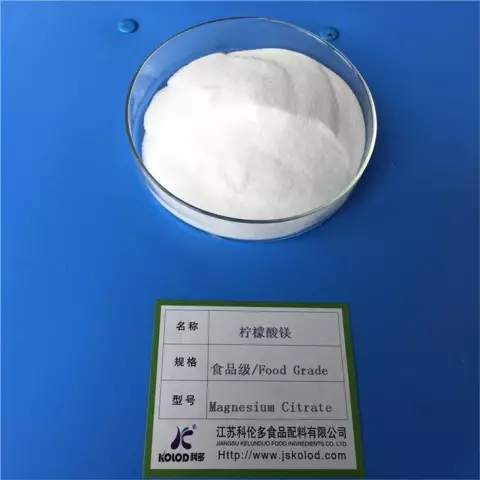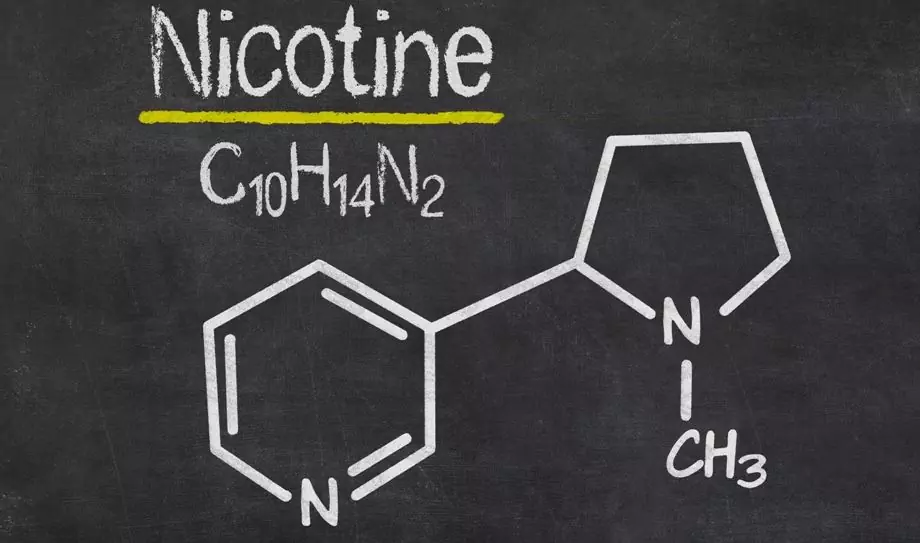- Author Rachel Wainwright wainwright@abchealthonline.com.
- Public 2023-12-15 07:39.
- Last modified 2025-11-02 20:14.
Magnesium citrate
Characteristic

Magnesium citrate (e345) is a food additive of the group of antioxidants used for food products as an acidity regulator, hardener of plant tissues, stabilizer, color fixer, salt substitute.
From a physical point of view, the additive e345 is a colorless crystals or white powder with a slightly acidic taste, odorless. It dissolves slowly in cold water, well in hot water. The resulting solution tastes of citric acid and is transparent in appearance.
Natural sources of magnesium citrate are citrus peels, cotton leaves, pine needles and all fruit fruits. Artificially, it is obtained from equivalent amounts of citric acid and magnesium hydroxide.
Properties of the food additive e345
In foreign medicine, magnesium citrate is used as a laxative to cleanse the intestines before surgery. This eliminates the need for a cleansing enema. However, e345 has a wider spectrum of pharmacological action - sedative, analgesic, hypnotic, antiarrhythmic, anti-stress, choleretic, anti-osteoporotic, anticonvulsant, etc.
More than three thousand enzymes in the body depend on magnesium. It is not for nothing that it is also called the metal of life. Magnesium deficiency can lead to a number of complex diseases.
Magnesium citrate is the most convenient form of magnesium for absorption by the body, since citrates are the best conductors into cells. The content of pure magnesium in magnesium citrate is about 11%.
Application of magnesium citrate

Food additive e345 is used in 70 food standards as an acidity regulator and antioxidant synergist. It is allowed to add it to cocoa and chocolate products, fruit juices (up to 3 g / l), nectars (up to 5 g / l), as well as to jams, marmalades, jellies and other products, including low-calorie ones.
Add the additive e345 to unprocessed vegetables and fruits intended for cooling and freezing, to peeled and packaged potatoes, as well as fats and oils of vegetable and animal origin, with the exception of olive and oil obtained as a result of pressing. They use a food additive for culinary purposes, add to canned vegetables and fruits, whey cheeses, minced meat and semi-finished meat products, pasta and beer.
Magnesium citrate is also used as a melting salt for processed cheese (up to 30 g / kg). As a stabilizer, it is added to fats and minced meat products. For thermal stability, it is added to milk, and as an acidity regulator - in jelly, desserts, jams and preserves, bakery and confectionery products. As a synergist of antioxidants, e345 is added to juices, vegetable oils, margarines, pork fat.
In addition to the food industry, e345 is used in pharmaceuticals and cosmetics.
The effect of magnesium citrate on the human body
There are no restrictions on the daily consumption of the e345 supplement. The food supplement is considered relatively safe for the human body, however, it is not recommended for children.
Found a mistake in the text? Select it and press Ctrl + Enter.






